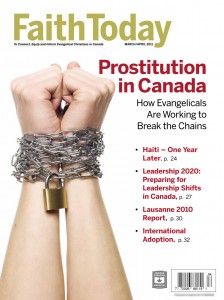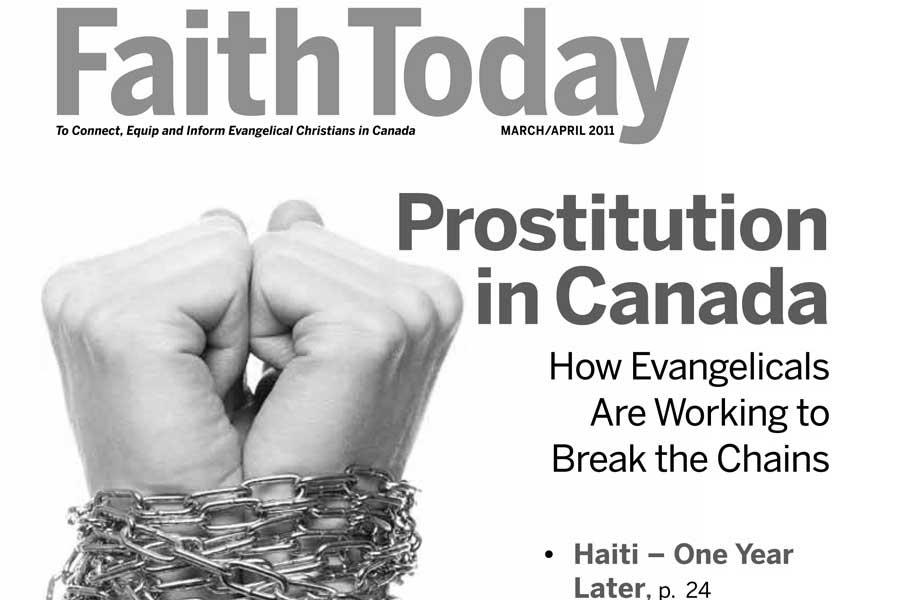I’m certain that it is unprofessional to break down and start crying during an interview for a magazine story — especially when you’re the one doing the interviewing. But that’s what I did near the end of a gruelling hour-and a-half long conversation with Katarina MacLeod. She was one of my main sources for a story on prostitution that came out last year.
Free of prostitution for about two years, Kat’s story was brutal to hear and difficult to write about. Before I spoke with her I had suggested to my fellow editors that we print the interview as a Question and Answer, to accompany the main story.
As a journalist, I relish the opportunity to ask questions that other people might be thinking — but not have the opportunity I have to ask. And I saw my chance to speak to a woman who had been prostituted as rare, with the potential to share insights with our readers that they might not get anywhere else.
 But after speaking with her for 10 minutes, I knew it would never work. The details of Kat’s story, and what led her into prostitution, were too raw, too brutal, and too disturbing for what is probably a gentler magazine than most.
But after speaking with her for 10 minutes, I knew it would never work. The details of Kat’s story, and what led her into prostitution, were too raw, too brutal, and too disturbing for what is probably a gentler magazine than most.
I knew I had to choose carefully what was appropriate to share, and sift through Kat’s story for redemption. And it was there in abundance.
It was actually the redemption that made me break down. When Kat described her phone conversation with her daughter — where her daughter gives her a word to describe what Kat was experiencing in her life — and that word was grace, I knew I had found the right way to end a challenging article.
Recently, I have seen Kat’s name and picture in other national publications, as she speaks out again — with a courage that I find incredibly inspiring — against the controversial decision by Ontario’s top court to legalize brothels.
Looking back, I feel silly that I cried during an interview with a woman who has seen more than I can imagine and lived through more than I think I could survive. She walked in hell and I got the sniffles just hearing about it. And she still has the strength to stand in front of the cameras and fight for the women still victimized by prostitution in Canada. I’ve found another new hero.
Kat’s story testifies to the amazing strength of the human spirit, that it can endure so much — emerge out the other side — and call it grace.


I can’t help but be affected by the stories I hear as I interview people. Each one changes me. I think crying is an appropriate response to a difficult story. Though I hear you about wanting to be professional. I know journalists are supposed to be impartial but you’re human too. I also wonder if crying when you hear someone’s story validates the person and what they’ve been through.
It was a good article.
I agree with Sandra. There’s impartial and then there’s unfeeling. I don’t think the idea of being impartial means turning off our humanity. Rather, I think your experiencing the emotion no doubt helps you inject feeling into an article that, as you indicated, can’t go into all the details, so that people see the depth below the statistics and arguments.
Yes, I agree with you both. Although it was a wee bit embarrassing at the time, I think it ended up building a bridge, and bridges are good.